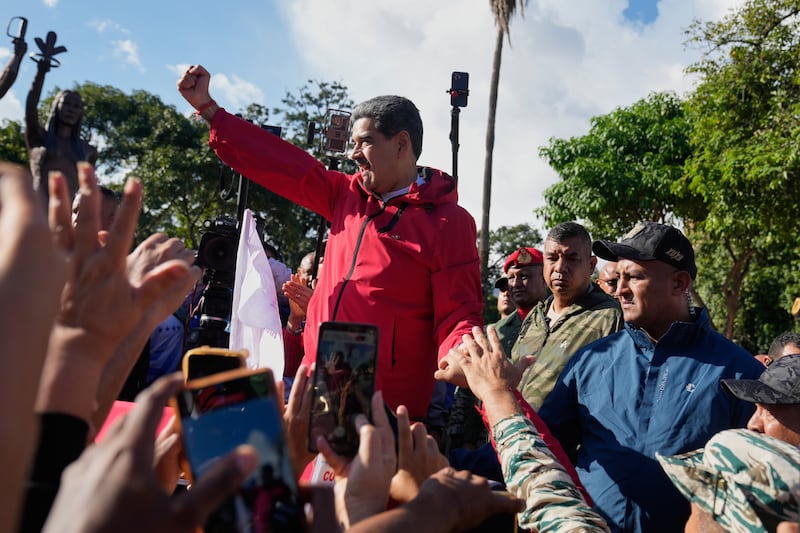- President Donald Trump has authorized the CIA to conduct covert operations in Venezuela aimed at removing President Nicolás Maduro from power, according to The New York Times.
- Trump justified the move by accusing Venezuela of flooding the U.S. with drugs, prisoners and people from mental institutions through the southern border.
- Critics, including the National Review, argue that such a significant regime-change operation exceeds the CIA’s legal authority and should require congressional oversight.
President Donald Trump has secretly authorized the CIA to conduct “covert action” in Venezuela, in a campaign against the country’s authoritarian president, Nicolás Maduro, The New York Times reported.
Until now, the Trump administration has activated U.S. military to target boats transporting drugs off the coast of Venezuela. Earlier this week, Trump announced on Truth Social that U.S. forces had killed “six male narcoterrorists,” during a strike in international waters.
The New York Times reported that Trump’s end goal is to remove Maduro from power.
Trump says he authorized the CIA to go to Venezuela to protect Americans
CBS reporter Ed O’Keefe asked Trump on Wednesday why he authorized the CIA to go into Venezuela.

Trump claimed that Venezuela has been the worst abuser of drug trafficking into the United States.
He said, “I authorize for two reasons, really. No. 1, they have emptied their prisons into the United States of America. They came in through the — well, they came in through the border. They came in because we had an open border policy. And as soon as I heard that, I said, a lot of these countries — they’re not the only country, but they’re the worst abuser."
“They’ve allowed thousands and thousands of prisoners, mental institution — people from mental institutions, insane asylums, emptied out into the United States. We’re bringing them back, but that’s a really bad — and they did it at a level that probably — many, many countries have done it, but not like Venezuela," Trump said.
Venezuelan drugs are entering the United States by land and by sea, and an operation to stop Venezuelan drug ships is already underway, he said. “So, you get to see that, but we’re going to stop them by land also,” Trump added.
Does the CIA have authority to take out Maduro?
When asked if the intelligence agency has the legal jurisdiction to remove Maduro from office, Trump responded, “Oh, I don’t want to answer a question like that. That’s a ridiculous question for me to be given, not really a ridiculous killer’s question, but wouldn’t it be a ridiculous question for me to answer.”
But the president continued, “I think Venezuela is feeling heat, but I think a lot of other countries are feeling heat too. We’re not going to let this country, our country, be ruined because other people want to drop, as you say, their worst.”

If Trump and the United States want regime change in Venezuela, “it seems like the sort of consequential policy decision that Congress ought to weigh in on,” the National Review wrote.
The National Security Act of 1947 outlines the CIA’s role and responsibilities. The agency is authorized to gather intelligence and analysis, but it is not authorized to directly intervene in foreign government leadership.
While specific intelligence details must stay classified, “a major and far-reaching foreign policy choice like this one really ought to be openly discussed with the American people,” the Review said.


